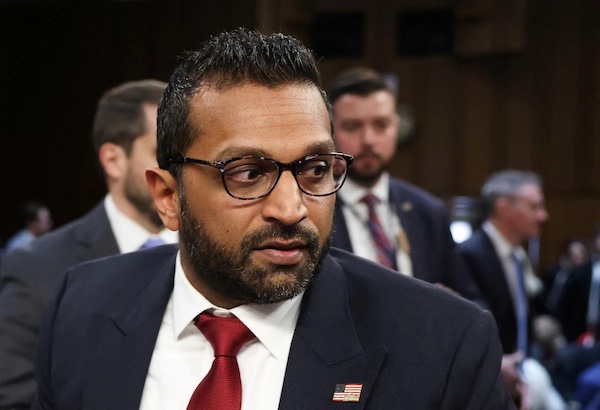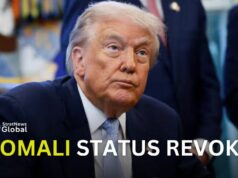
The Republican-controlled U.S. Senate confirmed Kash Patel, President Donald Trump’s pick for FBI director, on Thursday, putting a Trump loyalist atop the nation’s most prominent law enforcement agency at a time of growing upheaval.
Patel was confirmed by a 51-49 vote. Two moderate Republicans, Senators Susan Collins of Maine and Lisa Murkowski of Alaska, joined all Democrats in opposing Patel, but it was not enough to overcome broad Republican support.
Tradition Of Independence
The Trump administration’s efforts have collided with a deeply ingrained tradition of independence in federal criminal investigations, dating back to reforms that followed the Watergate scandal that toppled President Richard Nixon in 1974.
The move by the acting deputy attorney general, Emil Bove, to drop the Adams case caused particular tumult. The top federal prosecutor in Manhattan, where the case was brought, and at least seven other prosecutors in New York and Washington resigned in protest, with some accusing the Trump administration of improper motives.
A top Justice Department official accused the prosecutors of having disordered priorities.
Trump-appointed officials also fired more than a dozen lawyers who were involved in the two criminal cases against Trump and about 18 prosecutors who handled cases arising from the Jan. 6, 2021 attack on the U.S. Capitol by Trump supporters.
The FBI faced internal strife even before Patel’s arrival. Bove demanded a list from the bureau of all employees who worked on the sprawling investigation into the attack on the Capitol for an internal review.
Its acting director, Brian Driscoll, a career FBI agent, initially resisted and law enforcement groups condemned what they viewed as an unfair attack on career agents who worked on investigations assigned to them. Two groups of FBI agents sued over fears agent names would be publicly released.
The Trump administration has said agents who only followed orders would not be disciplined and has committed, for now, not to identify FBI agents who worked on the January 6 probe.
Patel’s Agenda
Patel has vowed that politics will play no role in his leadership of the FBI, but his closeness to Trump has prompted concerns from Democrats and many legal experts.
The top Democrat on the U.S. Senate Judiciary Committee, Dick Durbin, last week accused Patel of orchestrating the removal of FBI officials from the outside, citing information from whistleblowers.
Patel has said he will increase the FBI’s role in countering illegal immigration and violent crime, top Trump priorities, by “letting good cops be cops.” He has said he will scale back investigative work at the FBI’s Washington headquarters where many counterintelligence, national security and public corruption probes are housed.
Patel has been among the biggest boosters of claims that a “deep state” within the government has pursued Trump in an attempt to sink his political prospects.
“The erosion of trust is evident,” Patel wrote in a Wall Street Journal essay last month, referring to the FBI.
Patel’s nomination is itself evidence of Trump’s attempts to exert greater control over federal law enforcement. The FBI director, who serves a 10-year term, is not typically a role that turns over with the change to a new presidential administration.
Trump nominated Patel after winning the November election, effectively forcing former Director Christopher Wray, who Trump had appointed to the role in 2017, to resign. Trump fired Wray’s predecessor, James Comey.




